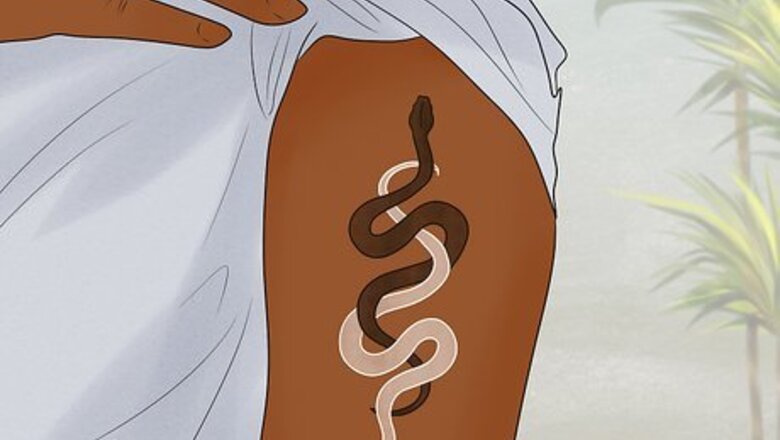
views
- Snake tattoos may represent rebirth, transformation, or renewal, calling to mind the way a snake sheds its skin as it grows and changes.
- Snake tattoos may also represent wisdom and knowledge, with close associations with the Garden of Eden and temptation.
- Snakes often bear cultural meanings like good fortune, protection, fertility, truth, abundance, or cunning.
Spiritual Meanings

Rebirth and transformation Snakes are famous for shedding their skins. They do this to accommodate their size as they grow. When they emerge from their old skin, there’s a shiny, like-new snake underneath. This often calls to mind rebirth, or becoming a brand new person.
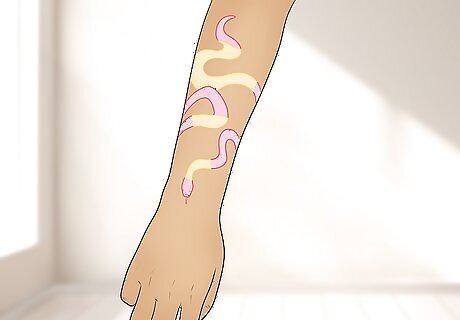
Change or letting go Snakes shedding their skins doesn’t just symbolize transformation, but transition as well. Not all changes are comfortable or easy, but they’re often for the better. Snakes teach us that we need to let go of our old selves in order to discover and embrace our new selves.
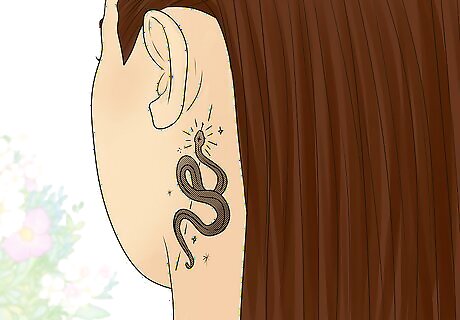
Wisdom and knowledge Snakes are often seen as cunning and clever hunters, lying in wait for the perfect moment to strike. Those keen instincts mean snakes are often associated with wisdom and smarts, and someone with a snake tattoo may want to channel those smarts. This can be especially true with a snake tattoo on someone’s neck or head, as the snake may be protecting their mind.

Immortality or reincarnation The ouroboros is a classic image of a snake eating its own tail. Over time, it’s come to represent immortality and the never-ending cycle of birth and death. Snakes can be a powerful reminder of the circle of life.

Strength or power Some snakes, like boas and pythons, kill their prey by wrapping around them and constricting them with their sinewy body. That’s why snakes are often synonymous with qualities like strength or toughness, and may lend someone with a snake tattoo much-needed vigor. This may be the case for snake tattoos on someone’s arms or hands, with the person’s hands channeling a snake’s strength.

Fertility In many places around the world, snakes are seen as signs of abundance and fertility. They spend their time on their bellies, closer to the nurturing earth than perhaps any other animal, or coiled in life-giving trees.

Femininity Here’s another meaning that may have its roots in Biblical lore. Eve was the first to accept the apple from the snake, and since then, women often have an unfair association with temptation and corruption. But the symbol of the snake takes that association and wears it as a badge of honor, reclaiming that feminine power.
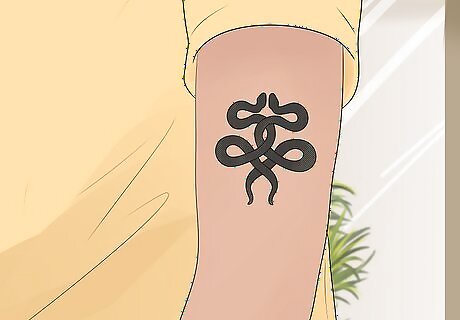
Balance Snakes are as graceful and quick as they are deadly and ferocious. This carefully blended mix grants snakes close ties to the virtues of balance or duality. A snake tattoo may remind its wearer that there’s beauty in danger, or that there’s good and bad in everything.
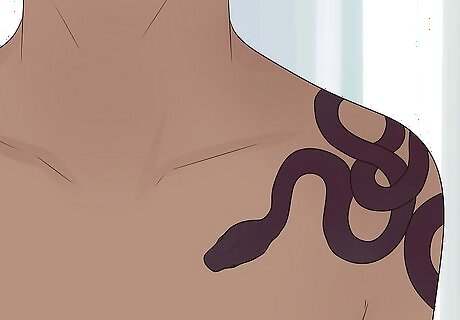
Danger Of course, many snakes are dangerous. They’re often venomous, sneaky, quick, and exacting. A snake tattoo might represent a certain danger its owner poses, or remind them of the dangers around them. Or, it might just be a cool aesthetic choice that gives its owner a little edge.
Cultural & Religious Symbolism
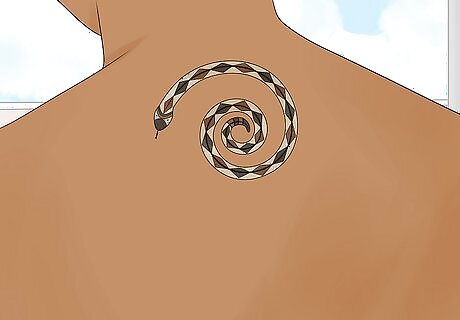
African In many South African cultures, snakes are afforded much respect and reverence, and are thought to carry messages from ancestors. Killing one is often looked down on. In Makhubo traditions, snakes are seen as immortal. In Zulu culture, it’s believed that consuming the raw liver of a snake protects you from harm.

Chinese The snake is the sixth animal of the Chinese zodiac. They’re often thought of as wise and full of knowledge, since they tend to be elusive, calling to mind mysterious and learned hermits. Some say that people born in the year of the snake are calm and profound thinkers, but also stubborn and maybe a bit too proud.
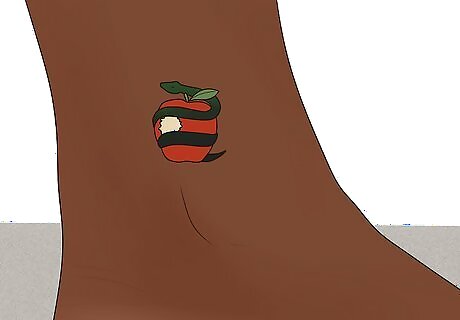
Christian In Christian tradition, the devil appeared in the form of a legged serpent to tempt Adam and Eve to disobey God, and God punished him by removing the serpent’s legs. Today, we often think of snakes as dark forces of evil, temptation, and sin, thanks to widespread Christian beliefs, but maybe that’s just a bad rap!
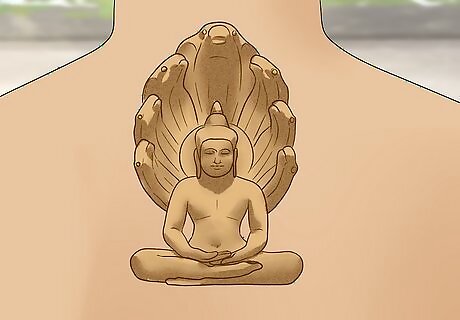
Buddhist In ancient Buddhist tradition, Mucalinda was the great serpent king that shielded Shakyamuni Buddha from the rain with his cobra hood while Shakyamuni attained enlightenment. That’s why snakes are often seen as guardians of truth and defenders against evil in many Buddhist cultures.

Greek Ancient Greeks loved a good snake. The Greek god Asclepius presided over the field of medicine and was thought to have healing powers—he carried a staff with a snake, which is where we get the modern medicinal emblem associated with healthcare. Greeks also feared Medusa, a fearsome Gorgon with snakes for hair. Nowadays, many people embrace this notorious villainess, and even get tattoos of her.
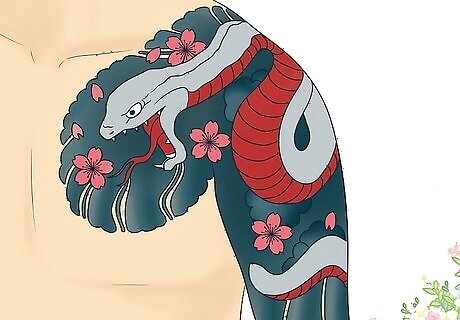
Japanese In some Japanese cultures, snakes are powerful spirits of great importance. They’re often messengers or guardians, and harming one is seen as a bad omen or bad luck. They’re also often associated with prosperity, health, and good luck (provided you don’t harm one). “Hebi” (snake) tattoos are a common genre of Japanese tattoo that feature snake imagery. Like any tattoo, these have many different meanings, but are sometimes thought to offer protection or good fortune.
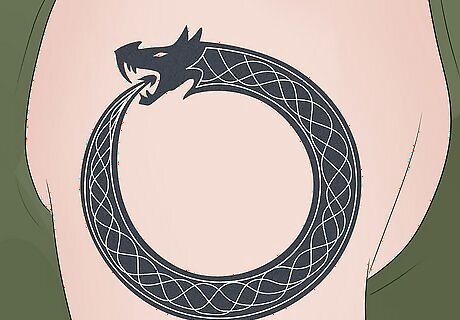
Norse In Norse mythology, the great serpent Jörmungandr, son of Loki, surrounds the world. Come Ragnarök, he’s said to be slain by Thor, and before that was thrown into the sea by Odin. Like the ouroboros, Jörmungandr has his tail in his mouth, calling to mind cycles, change, and transformation.
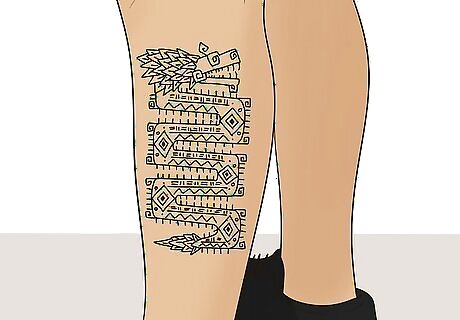
Mesoamerican Aztec and other Mesoamerican cultures revered the “Plumed Serpent” Quetzalcóatl as the god of the wind and the rain. He’s said to have invented the calendar, as well as serve as the god of arts, agriculture, and science. Some traditions recognize Quetzalcóatl as a creator of the universe, and of the world.
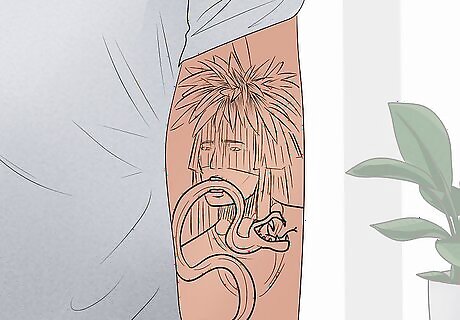
Hopi The Hopi people of the Southwest are famous for their “Snake Dance,” an event on the last day of a seasonal ceremony in which participants hold live snakes in their mouths before letting them go free in a ritual that encourages rainfall for the crops. Today, the Hopi people hold the ceremony in private to discourage sensationalism or disrespectful tourists.
Snake Tattoo Design Ideas

Get an American Traditional snake tattoo for a colorful design. The American Traditional style features bold lines and bright colors. What better way to showcase the winding curves and brilliant scales of your favorite snake species? Then, accent your tattoo with other staples of American Traditional, like hearts, daggers, roses, or other iconography. Or, find a Japanese artist to give you an authentic “hebi” tattoo to infuse your design with the intricate and colorful traditional Japanese tattooing style.
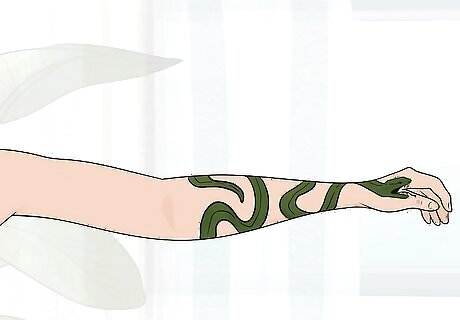
Get a snake sleeve to cover your arm with a powerful protector. Snakes make perfect sleeve tattoos, as they wind up and down your arm in a hypnotic coil. Position the snake's head on your hand to symbolize a readiness to strike when the opportunity arises, or have the snake winding up toward your shoulder as more of a companion.

Add floral designs to balance danger and fragility. The sheer ferocity of a snake isn’t for everyone, but that sense of danger is easily balanced by introducing more fragile or vulnerable imagery, like lilies, dahlias, or other floral designs. A snake among flowers also calls to mind the notion of danger among beauty.
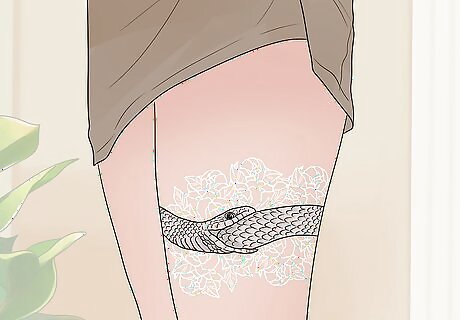
Opt for an iconic design like an ouroboros or the staff of Asclepius. Snakes are cultural heavy lifters, and have found their way into a number of iconic emblems. Snag an ouroboros tattoo to remind yourself of the cyclical nature of life, or get a staff of Asclepius to symbolize your desire to heal and to help.
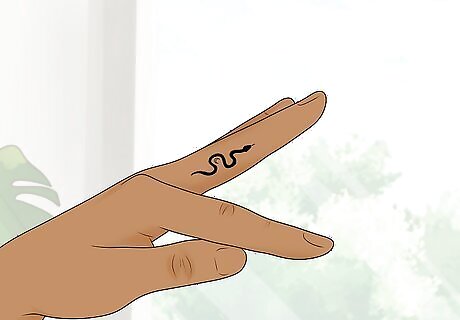
Get a minimalist or blackwork snake for an understated tattoo. If a snake seems like “too much,” consider getting it in just black ink to tone down the imagery while retaining the character. Or, opt for a minimalist aesthetic to offer just the suggestion of a snake, without the lifelike danger.

Consider the placement of your snake for added meaning. Where you place you tattoo on your body can alter or enhance its meaning, so think about where your own snake might be at home to best convey its meaning: A snake tattoo on the neck or head might symbolize wisdom or knowledge. A snake tattoo on the arms or hands might represent strength. A snake tattoo on the legs might represent quickness or a quiet step. A snake tattoo on your torso may represent protection or safety.




















Comments
0 comment